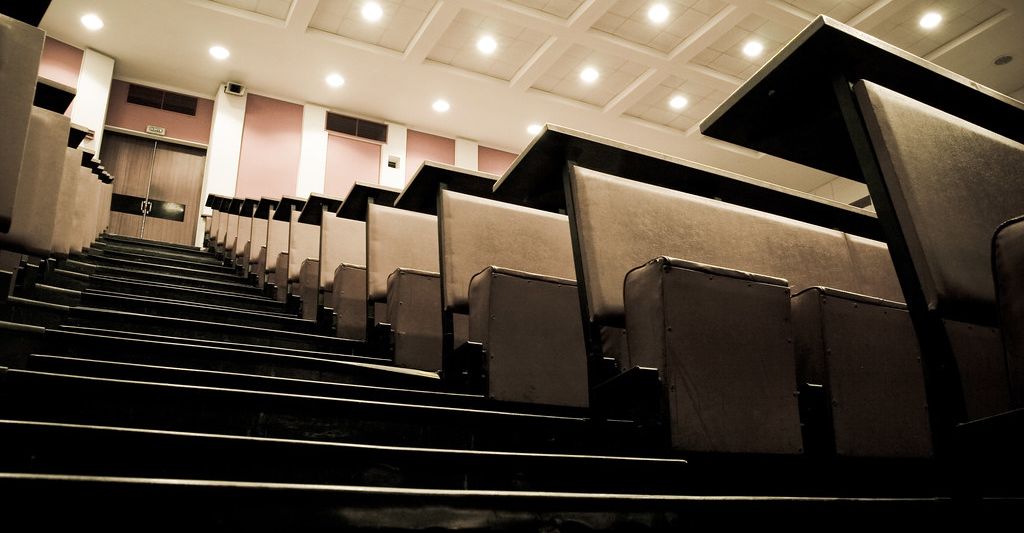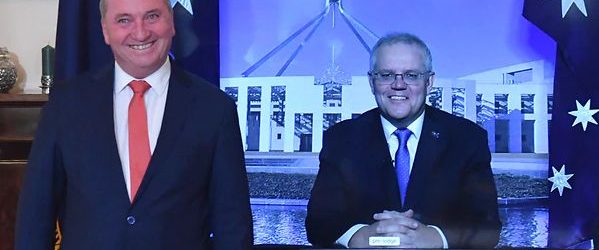It’s not been a great couple of weeks for police, with accusations of violence, racism and generally poor behavior that most would find unbefitting of a force sanctioned with protecting the public.
We saw vicious scenes of police beating protesters at an anti-mining rally in Melbourne, with some protesters sent to hospital and others arrested; attacks against journalists were also reported. Police referred to it as a ‘professionally conducted operation’. Is that so?
We saw one officer flashing a hand symbol commonly used by fascists across the world in an ongoing culture war. An internal police investigation found, unsurprisingly, nothing sinister in his actions, though gave contradictory explanations of what it meant, first telling media that he was asking protesters, ‘are you ok?’, but the next day claiming he was indicating ‘all is ok’. Days after these conclusions, police expressed ‘extreme disappointment’ at the fact that the officer had shared memes on his social media account from the alt-right movement where the above hand gesture signifies White Power. A happy coincidence.
Another officer is currently under investigation for having a sticker on his bodycam stating ‘EAD Hippy’, culturally translated as Eat a Dick Hippy. Police, unsurprisingly, initially responded by stating that the picture might be a fake. After a short investigation, however, police found themselves again ‘extremely disappointed’ to learn that it was in fact real and are now considering disciplinary action. What are the chances?
Then there was the disturbing footage of two Afghan-Australian Muslim women being racially abused and degraded by police during a traffic stop, where they were asked to ‘swear to Allah’ and threatened with false arrest. Police have refused to confirm whether the officers are still working, after an LECC investigation found them to have engaged in ‘serious misconduct.’ Tellingly, one officer yelled at the women to not ‘take advantage of our system’, while reference is also made to Villawood detention center. As if there was any link.
And as if all of that wasn’t enough, the man who had his arm ‘ripped from its socket’ by police during a false arrest spoke out about his terrifying ordeal. Police had conducted a raid on a home above famous queer bookshop, Hares and Hyenas, allegedly searching for an armed member of a ‘Lebanese gang’. When they found an unrelated and petrified man escaping from what he thought were intruders, they violently arrested him, tore his arm out of its socket, and shattered some of his bones. While the police force has helped pay his medical bills even before the investigation is complete, the Police Union announced their pride in the officers involved ‘because they did everything required of them.’
There has been a general reaction of surprise and especially disappointment towards these incidents, which itself is disappointing but not surprising.
It’s disappointing because police violence is hardly a new phenomenon, and one neither has to dig deep, nor search far, for examples. It was disturbing but not surprising, for example, to hear, during the People’s Hearing into Racism and Policing in 2013, the uncanny similarity between entirely disparate stories of police abuse. Young people from all across the state, total strangers unto one another, shared stories of racist police violence and abuse that were so similar that one would be forgiven for assuming we were all reading from the same script. But we weren’t. We were simply describing a shared – and presently ongoing – reality. It’s a violent reality that society’s misfits, and anybody who dares associate with them, know all too well.
The reaction however is not altogether surprising, because the effort that’s exerted in covering up this violent reality is incredible, if only for its sheer efficacy. Despite everything we know about the ingrained nature of police violence, despite case after case of discrimination, harrowing story after another of Indigenous deaths in custody, about corruption and sexual assault, including the strip search of young girls, we still largely speak of police violence, and especially police racism, as an aberration. We talk of being ‘disappointed’, as if despite all the evidence, we expected better. We talk of how these bad incidents undermine the otherwise ‘good work’ of the police, as if their bad work is not a daily practice. We discuss how the response to these incidents make the force ‘lose credibility,’ as if they were credible prior to this latest response.
These responses may be well-meaning, but they deny an obvious reality, and the insidious nature of racist ideology is in the denial of what is manifestly evident. As if we can’t see the arrogant smirk on his face. As if we can’t see his affiliation with alt-right culture. As if we don’t see police supporting fascists at protests. As if we can’t put two and two together. As if we can no longer discern genuine concern from cocky posturing. As if we don’t intimately know what the smug face of racism looks like. As if we’ve not had to do the work of differentiating good cops from bad cops since we were kids because some angry man with a gun was chasing us. As if targeted policing were a mistake. As if over-policing were an accident.
As if all of a sudden we’re all stupid.
I recall vividly showing up to observe a protest against Geert Wilders’ Australia visit in 2013, unidentifiable in black motorbike leathers and helmet. I was immediately welcomed by police, who formed a human chain around me to protect me from the protestors. I recall it vividly because it was the first time I actually felt protected, rather than threatened, by the presence of police. The moment they glanced at my licence, however, and saw my ethnic name, they immediately threw some abusive words my way and dispersed.
Which begs the question, who did they think they were protecting?
I recall just as vividly a more mundane incident only months later, when police knocked on my door as I was unwinding with tea, as I am wont to do most evenings. They asked for somebody I had never heard of, and when I advised them to that effect, they became angry and abusive. Feeling threatened, I advised them that if they had no further business, I was heading back inside, to which one officer shouted, ‘You’re next mother-fucker.’
Next for what?
Reports recently emerged that only 2% of police complaints made to the LECC were fully investigated. Even then, those that were investigated were likely to be biased, according to the Commission, which noted that it was ‘probable … that an investigating officer would have a past or ongoing relationship with the officer who was the subject of the investigation.’ And how many abusive incidents don’t even make it to the Commission? I once called a police station to report an officer that had launched an abusive tirade against me over the phone. When their attempts to talk me out of pursuing the matter failed, they promised to transfer me through to the complaints-handling area. Instead, they transferred me back to the abusive officer, who first apologised, and then resumed his vulgar abuse when, shockingly, I decided I didn’t trust him enough to pass on my landlord’s phone number.
Is it really any wonder that so many people don’t trust the police? That they see them simply as a state-sanctioned gang in uniform? To suggest therefore that slogans such as Fuck the Police are used because we hate the police is to reverse the order of events that lead us to those statements in the first place. It is to suggest that we are driven by a blinding savage-like rage rather than a logical deduction of our violent experiences. To suggest that we hate rather than justifiably fear police is a direct denial of our ongoing lived realities. It’s a cover-up.
And it’s precisely in the absurdity of the cover-up that racism derives much of its legitimating power. Indeed, the only defence for something so obviously wrong is something so obviously absurd: Violence is protection. Fascism is empathy. Oppression is freedom. Invasion is liberation. Victim is oppressor.
War is peace.
The same is true of the incredulous double-speak of immigration detention practices. As if there is any justification, ever, for locking up children seeking safety. Likewise in describing a $300 million-dollar wage theft as ‘underpayment’. None of these are accidental; we are living within a behemoth that is not broken, but doing precisely what it was designed to do, and then masking that truth.
The role of the ethical citizen therefore is not to engage the ideologues on their own parameters, thereby legitimating their violating narratives. Our role is to insist, at all costs, on the truth. On pointing directly at the thing being denied: the racism, the violence, the theft, the sinister intention … the sheer bullshit of it all. On piercing through the veneer of civility that simply cloaks what we all experience as a system of compound violations. On forcefully drawing the curtain, over and again, to reveal the frail old wizard who builds and sustains a violent world order around his insecurities, fears and privileges.
Our role, importantly, is to absolutely refuse the unrelenting attempt by state institutions to downplay, compartmentalise and individualise police violence. There is a direct and inherent link between police beating climate protesters, degrading Muslim women, taunting political activists, harassing journalists, killing and incarcerating Indigenous people, threatening brown men for eating and black men for walking … We must continue to highlight these links with a fervor just as unrelenting, and deny their denials until they simply become untenable and collapse in on themselves.
Our role is to situate this violence within a broader context of economic exploitation and a complex network of power dynamics that maintain a colonial social order premised on the maintenance of bodily servitude to the sacredness of capital, its purveyors and beneficiaries.
Our role is to bound together and commit to fighting that oppression.
As if we have any other choice.







